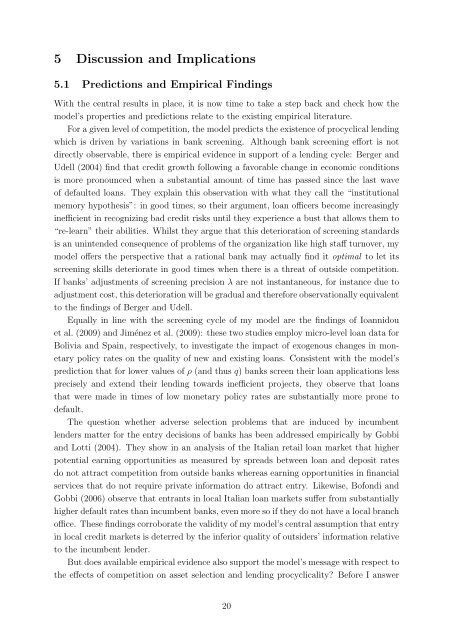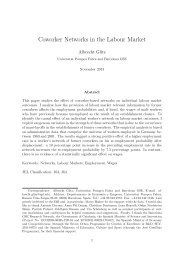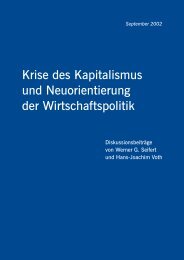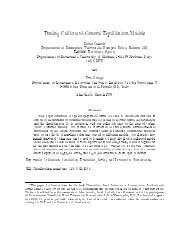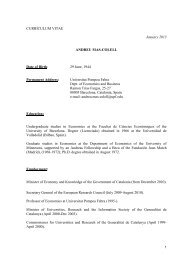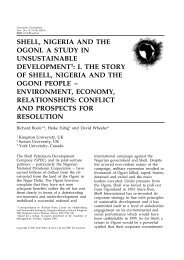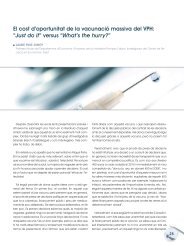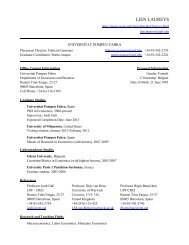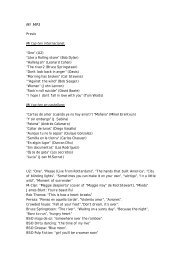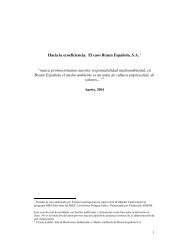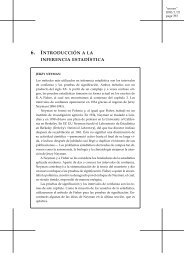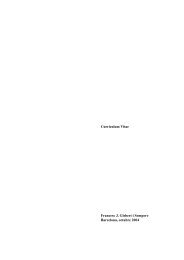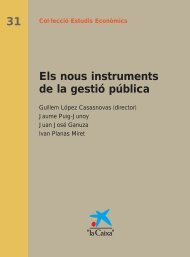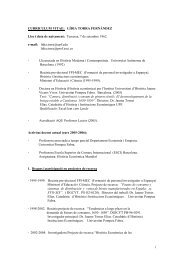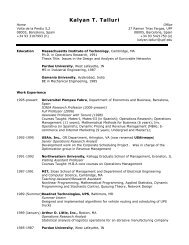Bank Competition, Information Choice and Inefficient Lending Booms
Bank Competition, Information Choice and Inefficient Lending Booms
Bank Competition, Information Choice and Inefficient Lending Booms
You also want an ePaper? Increase the reach of your titles
YUMPU automatically turns print PDFs into web optimized ePapers that Google loves.
5 Discussion <strong>and</strong> Implications<br />
5.1 Predictions <strong>and</strong> Empirical Findings<br />
With the central results in place, it is now time to take a step back <strong>and</strong> check how the<br />
model’s properties <strong>and</strong> predictions relate to the existing empirical literature.<br />
For a given level of competition, the model predicts the existence of procyclical lending<br />
which is driven by variations in bank screening. Although bank screening effort is not<br />
directly observable, there is empirical evidence in support of a lending cycle: Berger <strong>and</strong><br />
Udell (2004) find that credit growth following a favorable change in economic conditions<br />
is more pronounced when a substantial amount of time has passed since the last wave<br />
of defaulted loans. They explain this observation with what they call the “institutional<br />
memory hypothesis”: in good times, so their argument, loan officers become increasingly<br />
inefficient in recognizing bad credit risks until they experience a bust that allows them to<br />
“re-learn” their abilities. Whilst they argue that this deterioration of screening st<strong>and</strong>ards<br />
is an unintended consequence of problems of the organization like high staff turnover, my<br />
model offers the perspective that a rational bank may actually find it optimal to let its<br />
screening skills deteriorate in good times when there is a threat of outside competition.<br />
If banks’ adjustments of screening precision λ are not instantaneous, for instance due to<br />
adjustment cost, this deterioration will be gradual <strong>and</strong> therefore observationally equivalent<br />
to the findings of Berger <strong>and</strong> Udell.<br />
Equally in line with the screening cycle of my model are the findings of Ioannidou<br />
et al. (2009) <strong>and</strong> Jiménez et al. (2009): these two studies employ micro-level loan data for<br />
Bolivia <strong>and</strong> Spain, respectively, to investigate the impact of exogenous changes in monetary<br />
policy rates on the quality of new <strong>and</strong> existing loans. Consistent with the model’s<br />
prediction that for lower values of ρ (<strong>and</strong> thus q) banks screen their loan applications less<br />
precisely <strong>and</strong> extend their lending towards inefficient projects, they observe that loans<br />
that were made in times of low monetary policy rates are substantially more prone to<br />
default.<br />
The question whether adverse selection problems that are induced by incumbent<br />
lenders matter for the entry decisions of banks has been addressed empirically by Gobbi<br />
<strong>and</strong> Lotti (2004). They show in an analysis of the Italian retail loan market that higher<br />
potential earning opportunities as measured by spreads between loan <strong>and</strong> deposit rates<br />
do not attract competition from outside banks whereas earning opportunities in financial<br />
services that do not require private information do attract entry. Likewise, Bofondi <strong>and</strong><br />
Gobbi (2006) observe that entrants in local Italian loan markets suffer from substantially<br />
higher default rates than incumbent banks, even more so if they do not have a local branch<br />
office. These findings corroborate the validity of my model’s central assumption that entry<br />
in local credit markets is deterred by the inferior quality of outsiders’ information relative<br />
to the incumbent lender.<br />
But does available empirical evidence also support the model’s message with respect to<br />
the effects of competition on asset selection <strong>and</strong> lending procyclicality? Before I answer<br />
20


